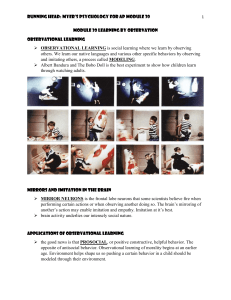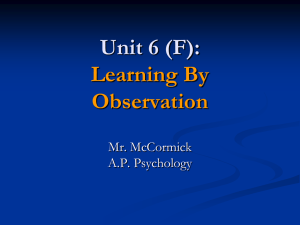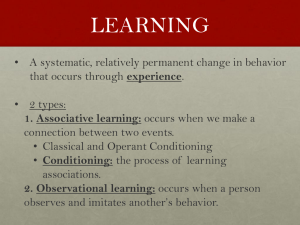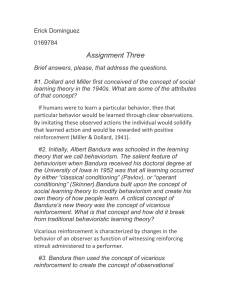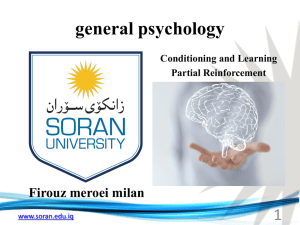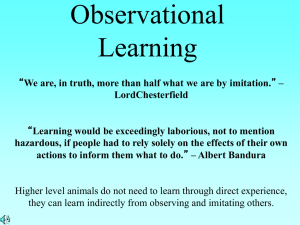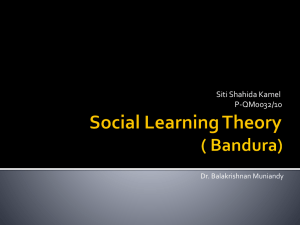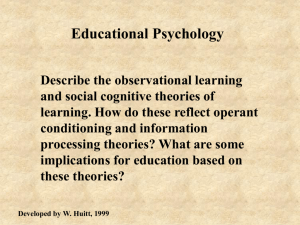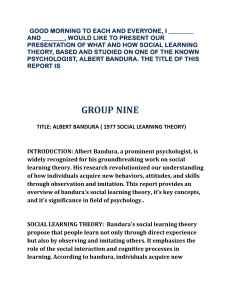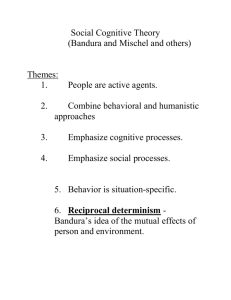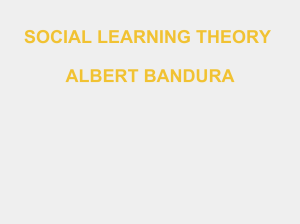EXPLORING PSYCHOLOGY (7th Edition in Modules) David Myers
advertisement
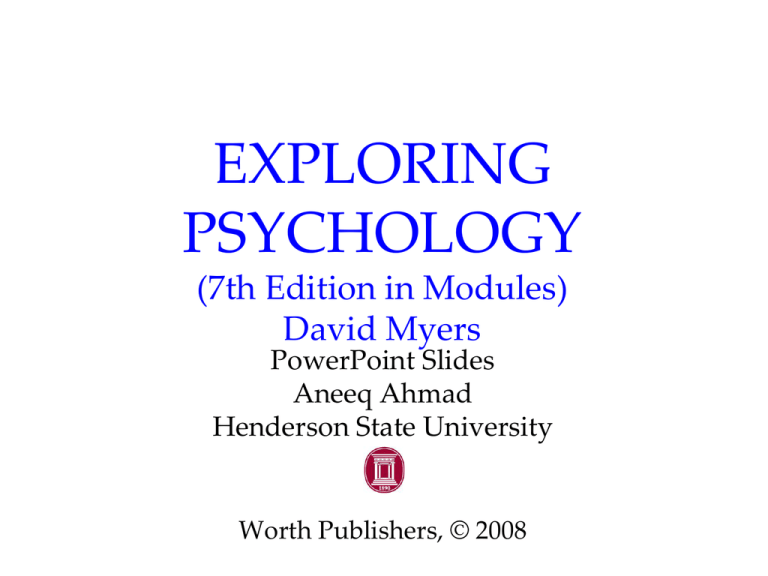
EXPLORING PSYCHOLOGY (7th Edition in Modules) David Myers PowerPoint Slides Aneeq Ahmad Henderson State University Worth Publishers, © 2008 Learning By Observation Module 20 Learning Learning by Observation Bandura’s Experiments Applications of Observational Learning Learning by Observation ©Herb Terrace The monkey on the right imitates the monkey on the left in touching the pictures in a certain order to obtain a reward. © Herb Terrace Higher animals, especially humans, learn through observing and imitating others. Reprinted with permission from the American Association for the Advancement of Science, Subiaul et al., Science 305: 407-410 (2004) © 2004 AAAS. Mirror Neurons Neuroscientists discovered mirror neurons in the brains of animals and humans that are active during observational learning. Learning by observation begins early in life. This 14-month-old child imitates the adult on TV in pulling a toy apart. Meltzoff, A.N. (1998). Imitation of televised models by infants. Child Development, 59 1221-1229. Photos Courtesy of A.N. Meltzoff and M. Hanuk. Imitation Onset Bandura's Bobo doll study (1961) indicated that individuals (children) learn through imitating others who receive rewards and punishments. Courtesy of Albert Bandura, Stanford University Bandura's Experiments Applications of Observational Learning Unfortunately, Bandura’s studies show that antisocial models (family, neighborhood or TV) may have antisocial effects. Positive Observational Learning Bob Daemmrich/ The Image Works Fortunately, prosocial (positive, helpful) models may have prosocial effects. Gentile et al., (2004) shows that children in elementary school who are exposed to violent television, videos, and video games express increased aggression. Ron Chapple/ Taxi/ Getty Images Television and Observational Learning Modeling Violence Children modeling after pro wrestlers Glassman/ The Image Works Bob Daemmrich/ The Image Works Research shows that viewing media violence leads to an increased expression of aggression.
